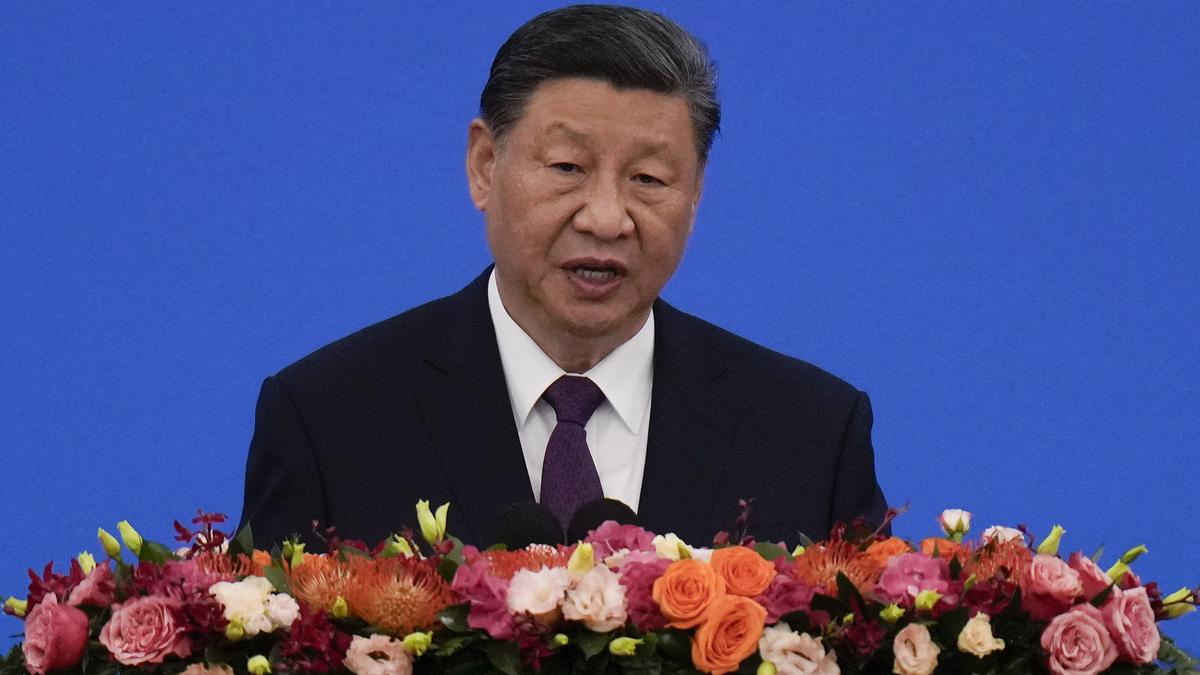Underlining the importance of the “Global South”, Chinese President Xi Jinping on Friday said that the Global South should actively participate in reforming and developing the global governance system and make the global governance architecture more balanced and effective.
“China’s resolve to stay on the path of peaceful development will not change. We will never take the trodden path of colonial plundering, or the wrong path of seeking hegemony when one becomes strong. We will stay on the right path of peaceful development,” Mr. Xi said, in a thinly veiled attack at the West.
He made the comments at an event marking the 70th anniversary of the “five principles of peaceful coexistence”.
Mr. Xi said that during the Cold War, newly independent countries aspired to safeguard their sovereignty and grow their national economy and the five principles were included in the China-India and China-Myanmar joint statements, which jointly had called for making them basic norms for state-to-state relations.
The five principles are mutual respect for sovereignty and territorial integrity, mutual non-aggression, mutual non-interference in each other’s internal affairs, equality and mutual benefit, and peaceful coexistence.
“The five principles of peaceful coexistence were born in Asia, but quickly ascended to the world stage… The Non-Aligned Movement that rose in the 1960s adopted the Five Principles as its guiding principles. Over the past 70 years, the five principles of peaceful coexistence have transcended time and space and overcome estrangement, showing robust resilience and everlasting relevance. They have become open, inclusive, and universally applicable basic norms for international relations and fundamental principles of international law,” he added.
Mr. Xi said that of all the forces in the world, the Global South stands out with a strong momentum, playing a vital role in promoting human progress. Standing at a new historical starting point, the Global South should be more open and more inclusive, and join hands together to take the lead in building a community with a shared future for mankind, he said.
“Together, we should be the staunch force for peace. We should promote peaceful settlement of international disputes, and participate constructively in the political settlement of international and regional hotspot issues. Together, we should be the core driving force for open development. We should restore development as the central international agenda item, reinvigorate global partnerships for development, and deepen South-South cooperation as well as North-South dialogue,” he added.
Mr. Xi said that countries should jointly uphold the “golden rule” of non-interference, and jointly oppose acts of imposing one’s will on others, stoking bloc confrontation, creating small circles, and forcing others to pick sides.
The Chinese President said that in the face of new challenges, the authority and central role of the United Nations can only be strengthened rather than weakened. “The purposes and principles of the UN Charter are never outdated, and they are getting ever more important. China advocates the vision of global governance featuring extensive consultation and joint contribution for shared benefit, and China believes in true multilateralism. Our goal is that international rules should be made and observed by all countries. World affairs should be handled through extensive consultation, not dictated by those with more muscles,” he said.
(The correspondent is in China at the invitation of the China Public Diplomacy Association)










